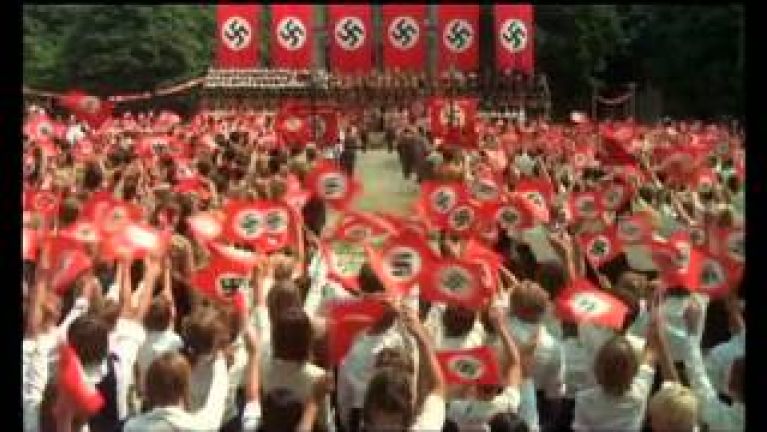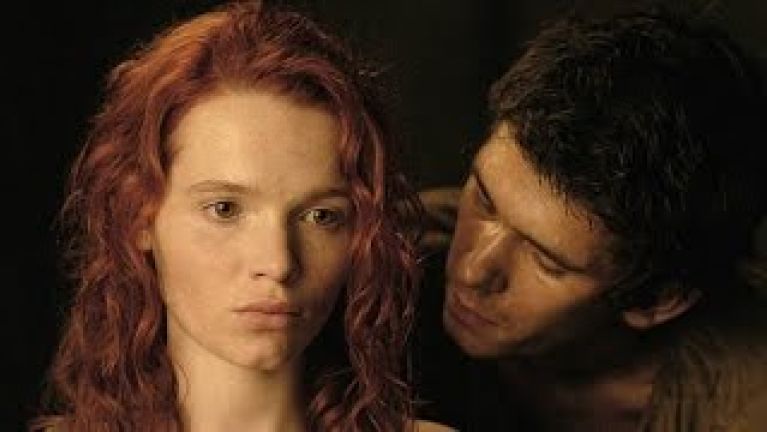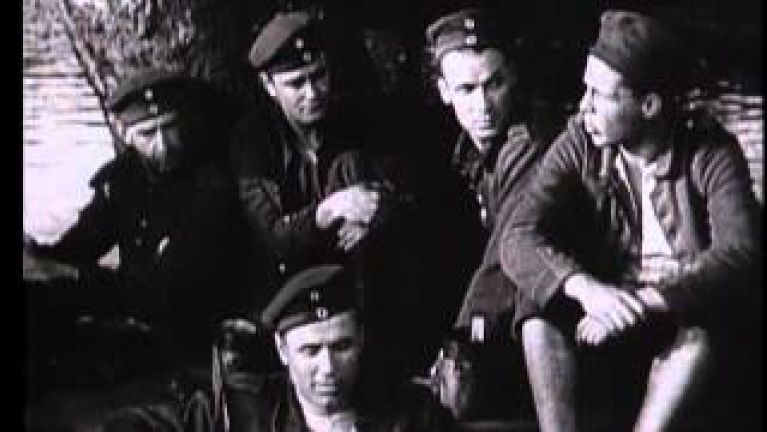Reading and watching
You can also get to know German literature at the cinema or via a streaming service – here are some successful film adaptations of great works.

Many successful books are made into films – and literature does not always come out the winner. We present five works here in which the two art forms come together at an equally high level. We also have an extra tip for you
Dieses YouTube-Video kann in einem neuen Tab abgespielt werden
YouTube öffnenThird party content
We use YouTube to embed content that may collect data about your activity. Please review the details and accept the service to see this content.
Open consent formThe Reader
Bernhard Schlink published the novel in 1995. It focuses on how West German society came to terms with the Holocaust in the 1960s. The book has been translated into more than 50 languages and was filmed in 2008 with an international star cast. Kate Winslet, Ralph Finnies and David Kross played the leading roles in the Hollywood production.
Dieses YouTube-Video kann in einem neuen Tab abgespielt werden
YouTube öffnenThird party content
We use YouTube to embed content that may collect data about your activity. Please review the details and accept the service to see this content.
Open consent formThe Tin Drum
The Tin Drum has won the highest accolades both as a book and as a film. Günter Grass was awarded the Nobel Prize for Literature for the book in 1999. The film adaptation of the same name by Volker Schlöndorff won the Golden Palm at the 1979 Cannes Film Festival and an Oscar for Best Foreign Film in 1980. Published in 1959, the novel describes the years before, during and after National Socialism and the Second World War from the perspective of a first-person narrator, Oskar Matzerath, a person of small stature.
Dieses YouTube-Video kann in einem neuen Tab abgespielt werden
YouTube öffnenThird party content
We use YouTube to embed content that may collect data about your activity. Please review the details and accept the service to see this content.
Open consent formPerfume
In 1985, Patrick Süskind published this novel about a psychopathic murderer with an incredible sense of smell who lives in Paris in the mid-18th century. The book has been translated into 48 languages. Offers for a film adaptation had apparently been coming from Hollywood since 1986, but it wasn't until 2006 that the film by German director Tom Tykwer – starring Dustin Hoffman, Alan Rickman and Ben Whishaw – came to the cinemas and became as successful as the novel.
Dieses YouTube-Video kann in einem neuen Tab abgespielt werden
YouTube öffnenThird party content
We use YouTube to embed content that may collect data about your activity. Please review the details and accept the service to see this content.
Open consent formDas Boot (The Boat)
In this novel published in 1973, author Lothar-Günther Buchheim describes the fate of a German submarine crew in World War II – based on his own experience. Wolfgang Petersen's cinema adaptation was released in 1981 – and was nominated for six Oscars. An over five-hour-long version of the film was shown as a series on television.
Dieses YouTube-Video kann in einem neuen Tab abgespielt werden
YouTube öffnenThird party content
We use YouTube to embed content that may collect data about your activity. Please review the details and accept the service to see this content.
Open consent formAll Quiet on the Western Front
A classic: Erich Maria Remarque's novel, published in 1928, describes the horrors of the First World War from the perspective of a young German soldier at the front in France. Lewis Milestone made a film version of the novel in 1930 in the USA. The movie was awarded two Oscars for best film and best director and is still regarded as one the 100 best US films today. The Nazis hated and later banned both the book and the film. A second film adaptation made for US television in 1979 was awarded a Golden Globe.
Dieses YouTube-Video kann in einem neuen Tab abgespielt werden
YouTube öffnenThird party content
We use YouTube to embed content that may collect data about your activity. Please review the details and accept the service to see this content.
Open consent formTschick (Why We Took the Car)
Two youngsters find freedom. Six years after Wolfgang Herrndorf's novel 'Tschick' was published, the film of the same name hit the cinemas – eagerly awaited by its fans. And it was just like the book: a fast-moving story honestly told in authentic language about two very different boys and a stolen car. On an adventurous journey through Germany it tells of love and suffering – the kind of themes that make a good film.
You would like to receive regular information about Germany? Subscribe here:








